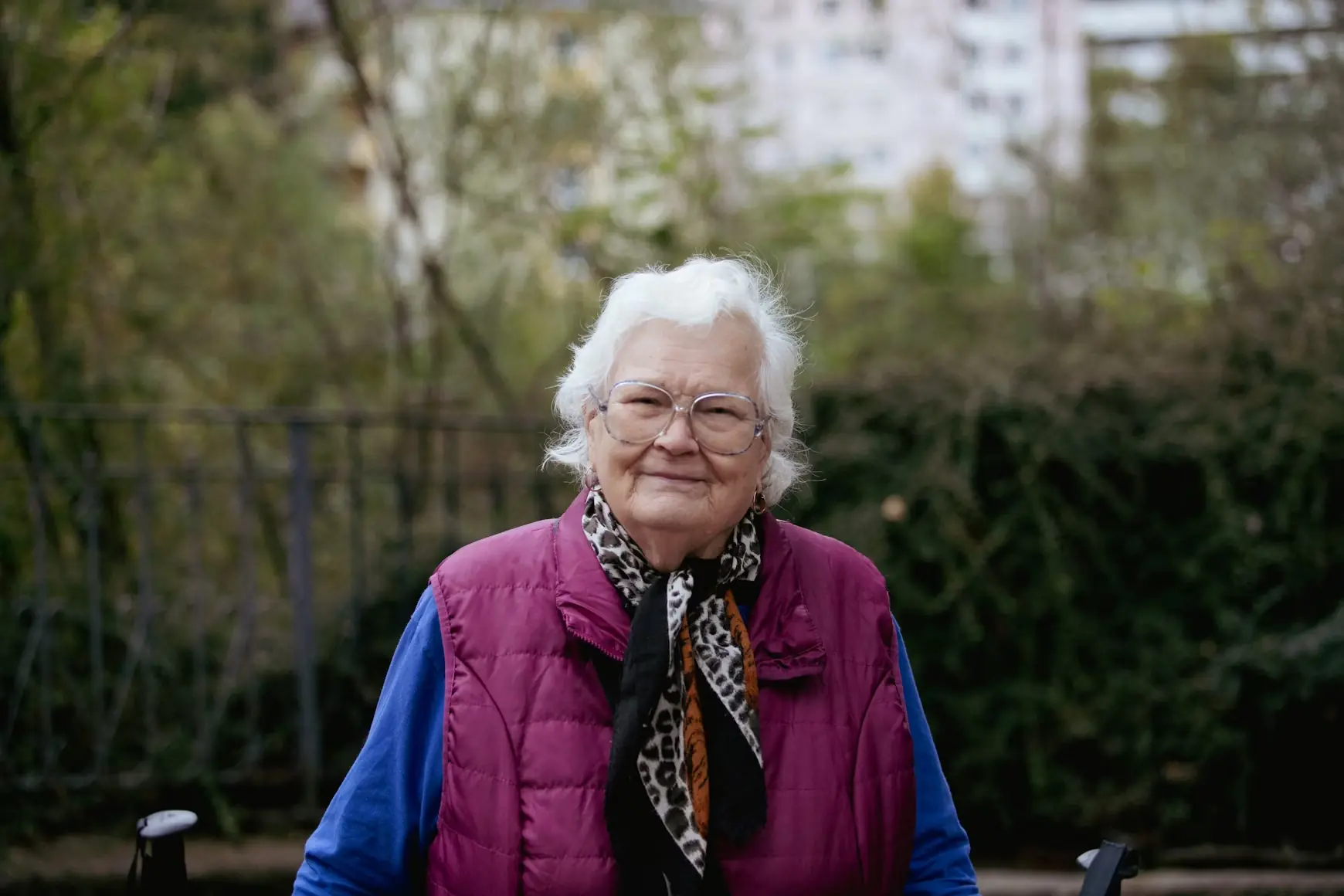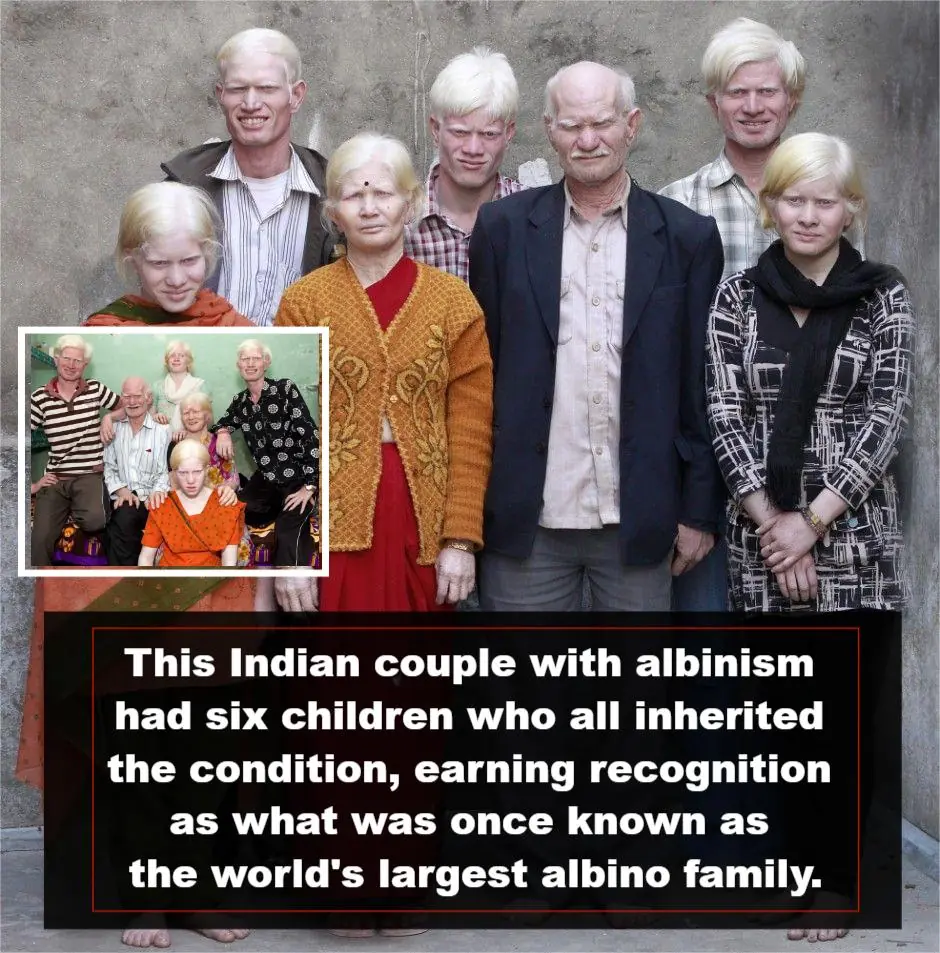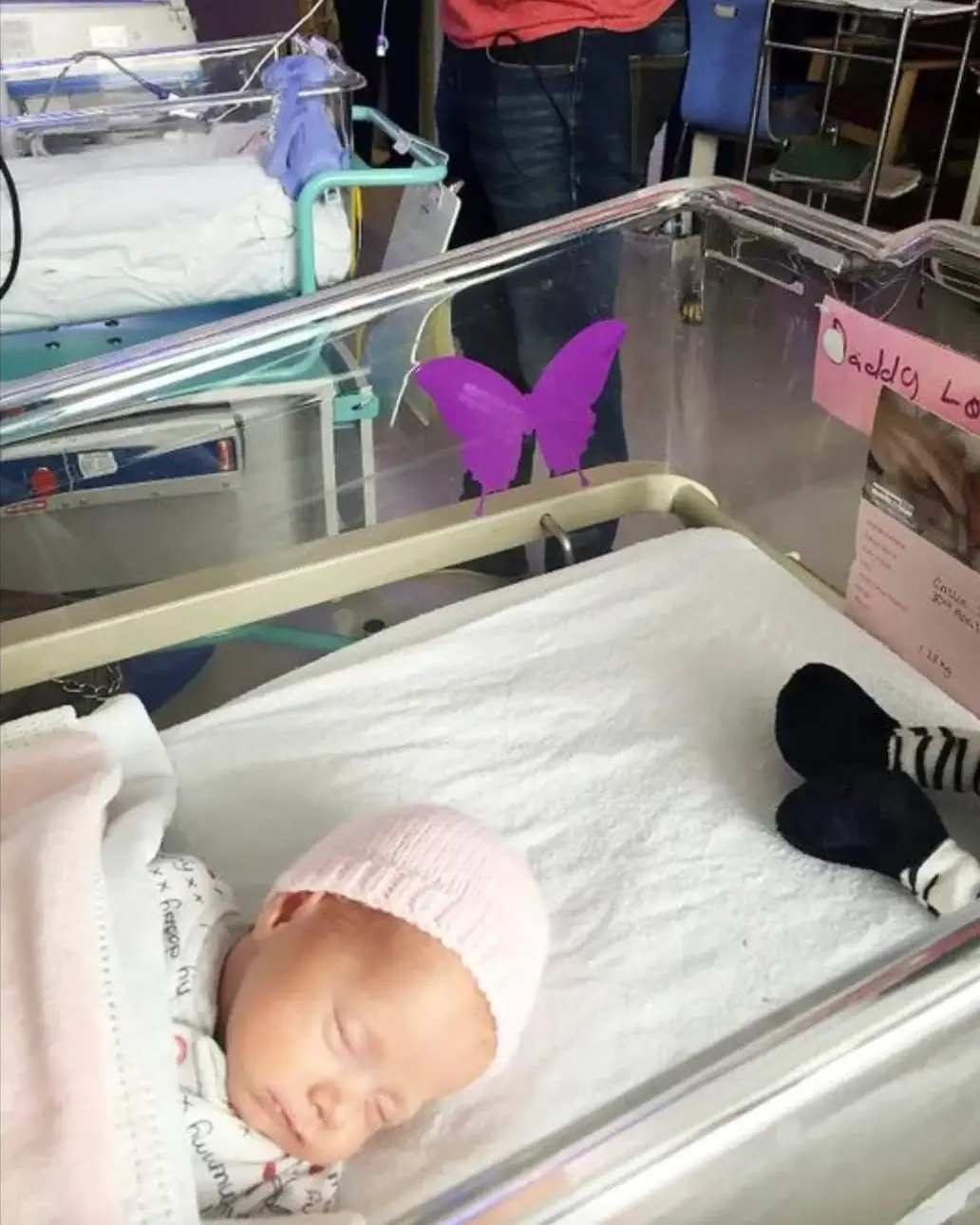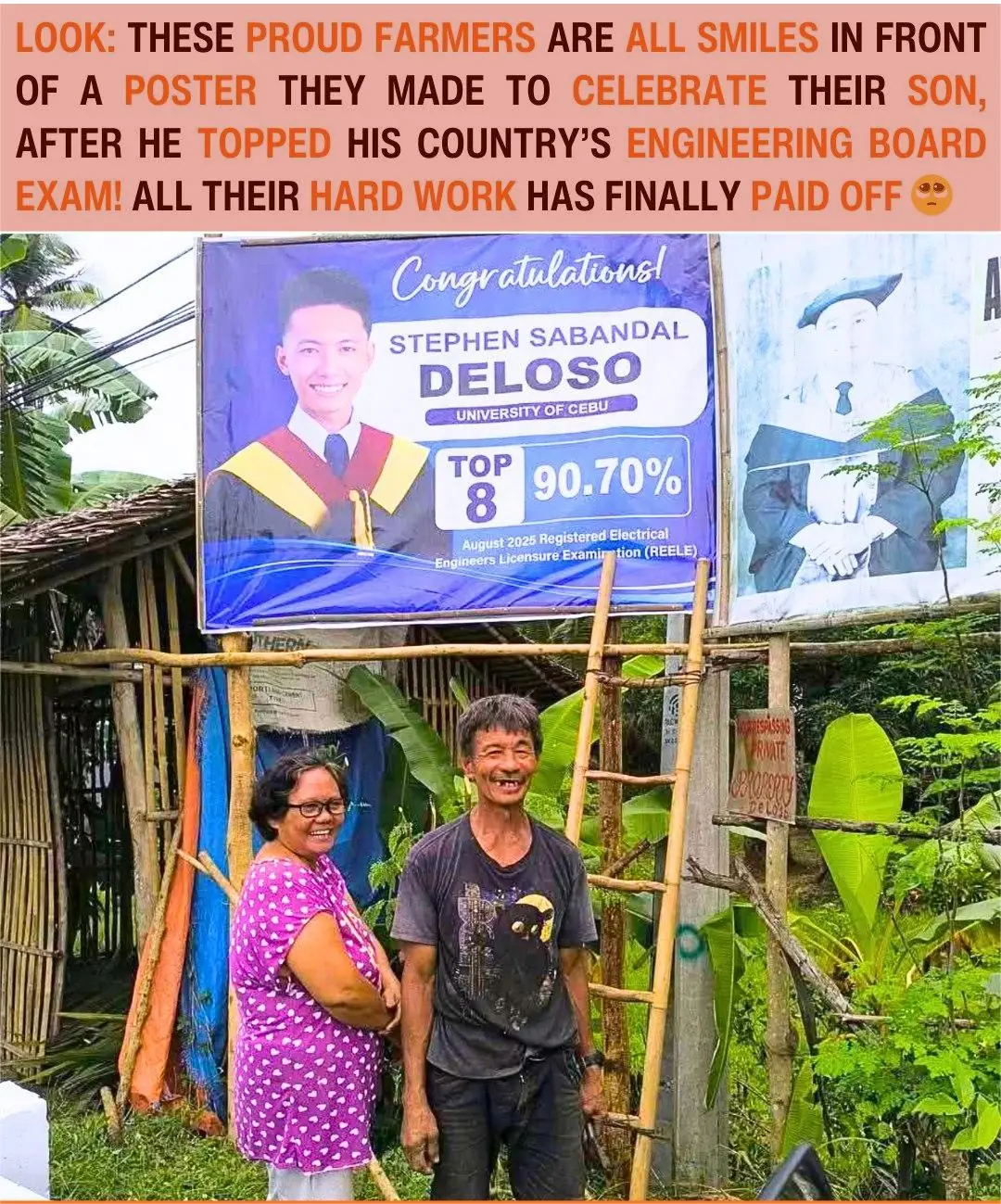
When Two Rare Souls Find Each Other: The Pullan Family of India and Their Extraordinary Journey
India — In an inspiring story that transcends mere genetics, Rosetauri and Mani Pullan, both born with albinism, found love, resilience, and each other’s company in 1983. Their union sparked a rare and heartwarming legacy—creating what was once recognized as the world’s largest albino family.
A Union Born of Shared Rarity
Rosetauri was the only person with albinism in his family, while Mani inherited the condition through her maternal lineage. Despite societal pressures and widespread misunderstanding, their marriage marked the beginning of a courageous journey shaped by unity and acceptance.
Raising Six Children, All with Albinism
Over the years, the couple had six children—all of whom inherited albinism—named Shankar, Vijay, Ramkishan, Renu, Deepa, and Pooja. Their unique appearance—pale skin, white hair, light-colored eyes—quickly drew attention, both in India and worldwide.
Expanding a Remarkable Legacy
The family's story grew even more extraordinary when their daughter Renu married Rosheh, a man also living with albinism. The couple welcomed a son, Dharamraj, who likewise inherited the condition. This brought the total number of albino members in the family to ten—earning them recognition as the largest known albino family.
Facing Prejudice Through Solidarity
Life was not without its challenges. The Pullans endured social stigma, financial hardship, and exclusion. Locals in southern India often shunned them, sometimes labeling them “angrez”—a term implying foreigners—simply because of their appearance.
Despite these obstacles, Mani adopted a perspective of gratitude, calling albinism a “gift from God.” Rosetauri took on odd jobs—selling eggs, for instance—to provide for his vast family, even as job opportunities remained scarce due to visible discrimination.
Life in Delhi: Humble, United, Hopeful
Today, the Pullan family resides in a modest one-bedroom flat in Delhi, where their tight-knit bond continues to thrive. The children, though facing visual impairment and sun sensitivity—a common issue with albinism—are determined to live fully. Shankar, for example, once studied at a school for the blind due to poor eyesight.
A Beacon of Hope and Acceptance
The Pullan family’s story reminds the world of the power of love, perseverance, and identity. From being marginalized to becoming a symbol of strength, they have illustrated that difference does not define destiny—it enriches it.
Mani’s optimistic view is emblematic: “All we know is that we can’t see properly, and we can’t sit under the sun for long, but we live the best we can.” In their unity, acceptance, and enduring spirit, the Pullans have turned rarity into something beautiful—offering a model of what family, faith, and resilience can achieve.
News in the same category


If you see a purple butterfly sticker near a newborn, you need to know what it means

These 12 Kids And A Dog Were Dubbed As The Crime-Busting Heroics

The Vet Raised Тhe Needle… Then Тhe Dog Looked Аt His Owner Аnd Did Something That Left Тhe Entire Room Иn Tears

Boy shares a heartfelt hug with his dog before surgery — the outcome surprises everyone

61-year-old man remarries his first love, wedding night brings shocking revelation

Daring duo approach angry animal stuck in bear trap, watch the fight this creature puts up

Viral Photo of Military Dog Standing Watch Over Sleeping Soldier Captures Hearts — But Full Story Remains Unverified

Little boy cries at gate—k9 dog senses something no one else does

18-year-old didn’t know his symptoms were cancer until it was too late

From Foster Care to Fatherhood: One Man’s Mission to Keep Five Siblings Together

Love Beyond Appearances: The Story of Joseph Williams and Vania

From Farmland to Top 8: Filipino Farmer’s Son Triumphs in Engineering Board Exam

JOKE OF THE DAY: The Little Boy and the Confession

My Stepmom Destroyed My Late Mom’s Prom Dress – But She Never Expected My Father Would Teach Her a Lesson

She Told Me Our Daughter’s “Cancer” Was Gone, But Then I Saw The One Thing That Proved It Was All A Lie

Lonely baby raccoon waits on porch after storm

A Viral Photo Captures Unbreakable Friendship From First Grade to Graduation

100s Of Bikers Buried The Little Boy Nobody Wanted Because Dad Was Murderer!
News Post

WHAT HAPPENS WHEN WE TONGUE KISS…See more

Nature’s Secret: 4 Healing Leaves That Support Metabolism, Immunity & Circulation Naturally

Don’t Drink Coconut Water Before You Know These 11 Secrets!

Pumpkin Seed Milk — The Natural Parasite Cleanser

Fast Rice Water Trick for a Brighter Smile

Morning Drink to Revive Your Kidneys Fast

The Onion Recipe That Could Transform Your Blood Sugar, Support Cleaner Arteries, and Protect Your Heart!

Top 4 Fruits That Help Your Kidneys Flush Out Toxins While You Sleep

Ginger, Clove, and Honey: The Natural Trio Your Body Will Thank You For

Heal 15 Years of Joint Pain Naturally with Turmeric and Honey Tea

This Juice Revived My Grandma’s Energy — Say Goodbye to Fatigue and Body Pain with This Natural Recipe

The Benefits of Eating 2 Boiled Eggs Every Morning: Transform Your Health!

If Your Kidneys Are in Danger, Your Body Will Send You These 8 Signals — Don’t Ignore Them

The Surprising Effects of Avocado on Your Heart and Brain

Ways to Get Over a Man Who Didn’t Value You

I’m 66 but Look 36 — My Secret? Aloe Vera & Ginger for Firm, Smooth Skin

How to Make Okra Water to Treat 17 Health Problems Naturally

Banana and Egg Mask to Look Younger Even in Your 80s

Scent Leaf Secrets Unveiled: 10 Surprising Health Benefits of This Miracle Herb
